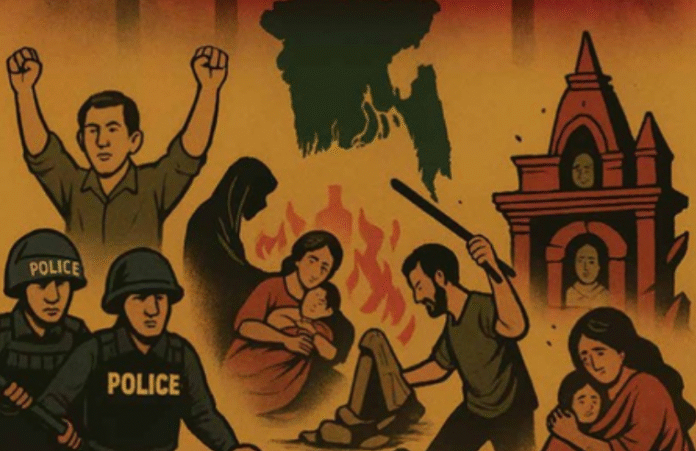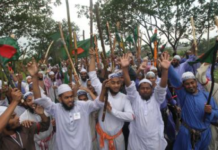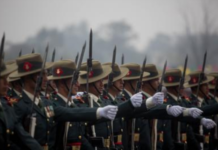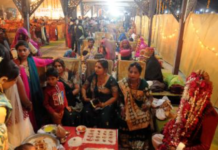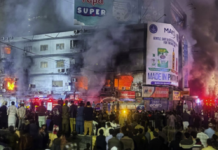GENEVA– Violence against indigenous communities in Bangladesh’s Chittagong Hill Tracts has drawn international condemnation, with human rights groups and global leaders urging the country’s interim government to take action against worsening abuses targeting minorities and dissenters.
The concerns follow deadly clashes in Khagrachari district on September 23, when security forces reportedly opened fire during protests sparked by the gang rape of a Marma schoolgirl. The violence left several indigenous people dead, dozens injured, and widespread destruction from arson and looting. Protesters had been demanding justice for the victim and accountability for the attackers.
The issue reverberated this week at the 60th Session of the UN Human Rights Council in Geneva, where activists highlighted Bangladesh’s deteriorating human rights record. Outside the UN headquarters, the International Forum for Secular Bangladesh staged a two-day poster exhibition showcasing accounts of rising communal violence, suppression of press freedom, mob killings, sexual abuse, and persecution of religious minorities.
Suhas Chakma, director of the New Delhi-based Rights and Risks Analysis Group, addressed the Council directly. He said three indigenous protestors were killed when the Bangladeshi Army fired indiscriminately on demonstrators last month. He also pointed to grim statistics from the past year: 637 mob lynching deaths, 878 attacks on journalists, nearly 2,500 violent incidents against minorities, and criminal cases filed against more than half a million political opponents.
Chakma criticized interim leader Muhammad Yunus for dismantling the National Human Rights Commission in November 2024 after it published a report on mob beatings, sexual violence, political harassment, and other abuses. “As of today, new members of the NHRC of Bangladesh have not been appointed, which is an unacceptable example of negligence toward state responsibility,” Chakma told delegates. He urged the Council to press Dhaka to restore the commission and confront rising violations.
Other rights advocates echoed those warnings. Charlotte Zehrer, a UN-EU Human Rights Officer with Global Human Rights Defence, cited more than 2,400 incidents of violence against minorities in the past year, including attacks on Hindu and Christian communities. “The documented violence includes attacks on places of worship and homes, gender-based violence, arbitrary arrests and false blasphemy charges, land grabbing and forced displacement, the forced resignation of minority professionals, and the forced conversion of teenagers and young adults,” she said.
Zehrer called for the immediate release of detained minority leaders and activists, reforms to discriminatory laws, and independent investigations into reported abuses. She also urged the international community to consider deploying a UN fact-finding mission to monitor the situation.
With Bangladesh already under the spotlight for political unrest, international pressure is now mounting for the government to confront allegations of systemic violence against its most vulnerable citizens. (Source: IANS)


